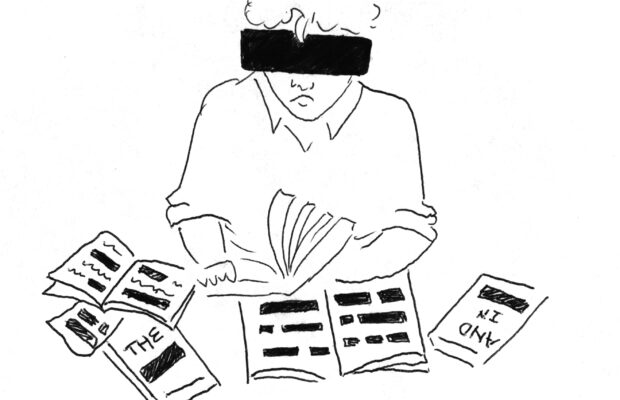Book bans limit perspectives and violate First Amendment rights

The First Amendment of the U.S. Constitution was created to protect the freedom of speech, religion, press, assembly and petition. Unfortunately, our nation’s fundamental ideas are being debated as our First Amendment rights have been trialed in recent years. This happens primarily through book bannings and other forms of censorship.
The protections that are under the First Amendment are not equitable nationwide and many other states have differing laws concerning censorship and what information can be disseminated. As a student-run publication, we work to distribute news that is factual and aims to educate. In addition to information being spread through the use of a student publication, books are a way in which knowledge is gained to create informed citizens in and out of high schools.
In 2023, CA Gov. Gavin Newsom signed Assembly Bill 1078, which prohibits school boards from banning books based on identity groups such as race, sexual orientation, or gender. However, books such as “To Kill a Mockingbird” and “The Adventures of Huckleberry Finn” are still challenged by those who find the topics too controversial for young readers. In addition to classic literature titles, many modern books covering controversial issues are being confiscated from many schools and libraries outside of California. Each state’s laws concerning book bans differ, having various and even extreme repercussions to readers depending on where one lives. However, in California, there are various legal safeguards to protect authors’ speech via Assembly Bill 1078. A common exception to many states’ laws that conserve books can be found in private schools, because they are privately run companies. This can result in there being a higher degree of censorship within these institutions– affecting their students.
According to the American Library Association [ALA], the first novel that was deemed unfit for the public and therefore put on the banned books list was “New English Canaan” by Thomas Morton, published in 1637. Since then, over 4,000 books have been challenged in the United States. Banning books is the equivalent of limiting perspectives from different voices in history. Book banning infringes on the freedom of speech because it inhibits an author’s audience and their ability to express their nuanced thoughts. Through the banning of books, audiences are not able to read about tragic and important events in history, even less so from academic sources, which can be more credible than a misleading Google search.
In Feb. 2022, “The New York Times” published an article titled “What Students are Saying About Banning Books from School Libraries.” In the article, students shared their opinions on book banning, which argue why students’ access to historical and opinionated literature is valuable and should not be taken for granted. Access to a wide range of media is what allows us as students to learn and grow from mistakes from the past. Furthermore, by banning such media, we are actively fostering a closed-minded and uneducated future generation with a limited worldview due to a lack of diverse books and resources to expand such mindsets.
While ignorance may be easier than acceptance, overlooking a dark past does not create a brighter future. People must be informed of history, no matter how tragic or sensitive the subject. Reading books with “sensitive” topics ensures that past oppression does not repeat itself. Banning books that reflect upon different times in our society gives students a limited perspective of life, which is often warped from reality. By restricting books that explore controversial issues, society risks losing the ability to have empathy and understanding toward others, ultimately creating a more divided community. Most banned books in public and school libraries can be purchased at Barnes & Noble and other bookstores under the “Banned Book” section. However, even through external resources, banned books are still not accessible to all, due to the cost to purchase from these stores, potentially creating a deficit in education between those who can and cannot afford restricted literary works.
Our publication is firmly against censorship, as it is a violation of First Amendment rights and a barrier to knowledge. Just as California Ed Code 48907 protects student journalists from restrictions, as discussed in our first editorial of the 2024-25 school year, readers should have the freedom to access books without interference. Similarly to censorship in journalism, book bans limit perspectives and prevent citizens from forming their own opinions.
Though the ones in charge of banning books often justify these bans by claiming the books are problematic or controversial, it is clear that there is bias in banning books because most books targeted by censorship in recent years feature minority characters or experiences. In 2023, titles representing the voices and lived experiences of LGBTQ+, Black, Indigenous and individuals of color made up 47 percent of those targeted in censorship attempts, according to the ALA. We as a publication appreciate and acknowledge that the Californian government fights for us to keep our First Amendment rights even when compromised in other U.S. states.



